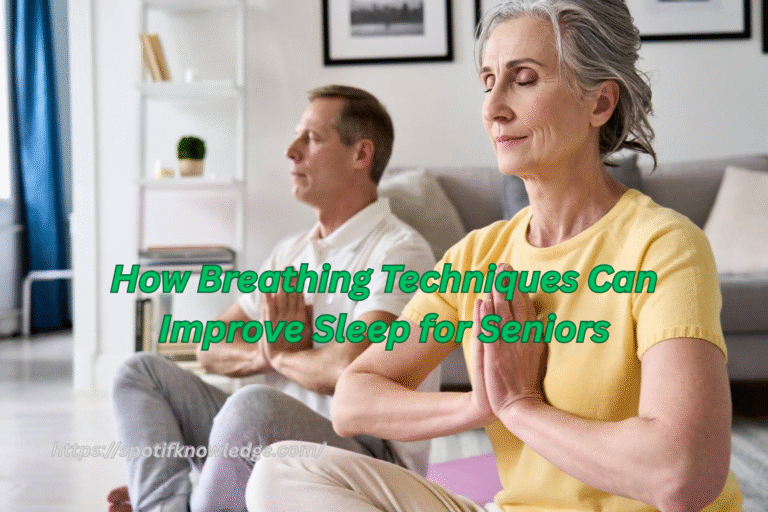Have you ever found yourself lying in bed, eyes wide open, wishing you could just fall asleep? Many seniors face this challenge night after night, and it often affects their energy, mood, and health. While sleeping pills may offer short-term relief, they don’t solve the root of the problem.
This blog post will show you how simple breathing techniques can help calm your body and mind, leading to deeper, more restful sleep. By the end, you’ll discover easy steps to unwind before bed and wake up feeling refreshed.
Why Sleep Becomes Harder With Age
As people grow older, changes in the body can make sleep less restful. Seniors often wake up more during the night or have trouble falling asleep.
This may be caused by pain, stress, or even side effects from medicine. The body’s natural sleep rhythm also changes with age, making it harder to stay asleep for long stretches.
Because of this, many older adults search for safe and simple ways to get better rest. Breathing techniques have gained attention because they are easy to do, don’t cost anything, and can be done anywhere.
The Science Behind Breathing and Sleep
When we feel stressed or anxious, our breathing becomes fast and shallow. This tells the brain that something is wrong, which makes it harder to fall asleep. But when we slow our breathing, we send the brain a signal that it’s safe to relax.
Breathing exercises lower the heart rate and relax tense muscles. They also help the brain let go of racing thoughts. Over time, people who practice breathing before bed often fall asleep faster and wake up less during the night.
Breathing Techniques to Try Tonight
One simple method is to breathe in through the nose for four seconds, hold for four seconds, and then breathe out through the mouth for four seconds. This is sometimes called box breathing. Another method is belly breathing, where you place your hand on your stomach and try to make it rise as you breathe in deeply, then fall as you breathe out slowly.
Doing these exercises for just a few minutes before bed can help the body shift into a restful state. They work best when done in a quiet space with dim lighting and no distractions. Some people like to pair breathing with soft music or light stretching.
Adding calm yoga for seniors to your evening routine can also support better sleep. Gentle movements, paired with breathing, help release tightness from the body and bring the mind into a peaceful place. It’s not about doing hard poses, but rather about slowing down and connecting with your breath.
Making Breathing a Nightly Habit
Like any skill, breathing exercises take practice. The more often you do them, the easier they become. Many people notice small improvements in sleep after just a few nights.
Try setting aside five to ten minutes each night to practice. If you miss a night, that’s okay. Just pick it back up the next day. The key is to stay consistent and give your body time to adjust.
A Simple Way to Feel Better Every Night
Sleep is one of the most important parts of health, especially for seniors. It affects memory, mood, and even the body’s ability to fight illness. Learning how breathing techniques can improve sleep for seniors is a small but powerful step toward better well-being.
With just a few minutes each night, these methods can lead to deeper sleep and brighter mornings. Did this guide help you? Browse the rest of this section for more advice on a variety of topics.

